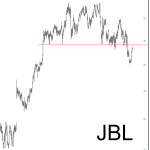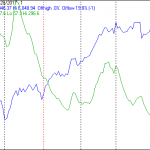Whether or not any central banker chooses to appreciate the fact, money is an important economic tool. Before it ever gets to be a store of value, there has to be some correct supply so as to become a medium of exchange (and almost by virtue a unit of account). The problem throughout history has been to foresee and then apply the “correct” amount.
Central banks have become corrupted as to that vital task. In these days of activist institutions, central bankers ironically attempt to influence entire economies without the slightest understanding of money. As I write so often, there is no money in monetary policy. If you think there is, so much the better for Jay Powell.
In days gone by, central banks were instead mechanical; that is, they responded to real world conditions by taking concrete monetary steps. The Financial Times in 2007 wrote tellingly about how the Bank of England used to work, just months before it would prove to the world how it no longer did.
High up on the wall of the Court Room at the Bank of England is a dial, linked to a weather vane on the building’s roof. Now a novelty for visitors to the Bank’s grandest function room, knowing the direction of the wind was a deadly serious tool of monetary policy on its installation in 1805.
If the wind was coming from the east, ships would soon be sailing up the Thames to unload goods in London. The Bank would need to supply lots of money, so traders could buy the wares landed at the docks. If a westerly was blowing, the Bank would mop up any excess money issued to stop too much money chasing too few goods, thereby avoiding inflation.
No mere theory here, inflation was an immediate problem for places where foreign trade could be so highly influential. FT in this one passage specifies for us only the one consequence but doesn’t quite get to the other. What happens if the bank isn’t there to supply currency as the ships come in at the docks? More importantly, what would prevent the central bank from doing this?








Leave A Comment